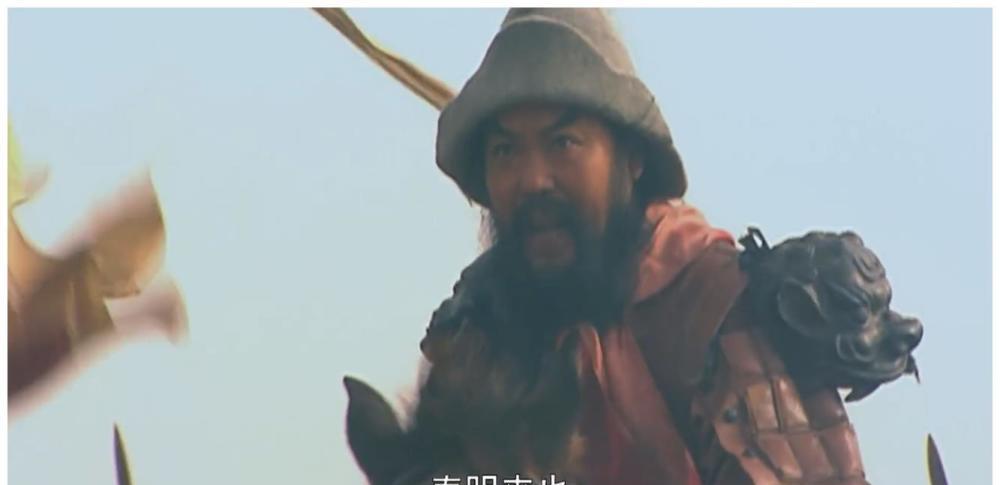I often see people complaining, saying that Liangshan has one hundred single and eight generals, and is basically invincible in the early stage. Although they also failed in their conquests of Liao, Pingding Tian Hu and Wang Qing, no generals were damaged, and even sun an, Bian Xiang and other fierce generals were surrendered, as well as the mage illusionary emperor Qiao Daoqing and the divine colt Ma Ling.
However, since the conquest of Fang La began, the generals fell one by one, first Song Wan, Jiao Ting, and Tao Zongwang, and then Xu Ning, Shi Jin, Qin Ming, and other generals were also killed.

After the statistics, it can be found that 102 good men of Liangshan participated in the conquest of Fangla, and six of Gongsun Sheng, An Daoquan, Huangfuduan, Le He, Jin Dajian and Xiao Rang were either hidden or left by the emperor's ministers. After the conquest of Fang La, only 36 of the 102 good men of Liangshan survived, that is, 66 generals were killed. Because of the heavy casualties, some people scolded Song Jiang for this, saying that he should not recruit An and so on.
What causes this? Is it because there are many General Fang La?
It is true that there were many generals under Fang La's command, such as Shi Bao, Fang Jie, Deng Yuanjue, Wang Yin, Pang Wanchun, etc., and there were fifteen or sixteen Liangshan generals killed by the five of them. However, this was not the root cause, because Wang Qing, Tian Hu and the Liao State also had no shortage of fierce generals, but the good men did not lose.
Is it because Fang La occupies the geographical advantage of Jiangnan?
Indeed, the good man of Liangshan did not have a good understanding of the geography of Jiangnan, and damaged some good men, such as Ding Desun, the tiger in the middle arrow, who was actually bitten by a poisonous snake, and then poisoned to death, which is also in line with the nickname, but this arrow is just a poisonous snake.
However, Liangshan also had no geographical advantage over the Liao state in the north and Wang Qing in huaixi, and when he conquered The Tianhu of Hebei, he had a topographic map of the Three Jins and Three Rivers that Xu Guanzhong gave to Yan Qing.
Whether the other side has a general or a geographical advantage, these are not the root causes. Personally, I think that the reason why the good man of Liangshan would lose most of it during the conquest of Fangla was deliberately done by the author. There are several advantages to writing this way.
First, this is realistic.
It's normal to fight dead, especially generals. For example, in the Romance of the Three Kingdoms, before the Battle of Xiangfan, Liu Bei did not lose any generals, until Guan Yu defeated Maicheng, and after being captured and killed, Zhang Fei was also killed; before the Battle of Wancheng, Cao Cao did not damage the generals and relatives, but in the Battle of Wancheng, he lost Cao Ang, Cao Anmin and Dianwei.
Our perspective is only on the general, in fact, zooming in, which battle does not kill people? It's just that the little minions are not famous, so no one asks.
Second, it can highlight the loyalty of the good people of Liangshan.
Before the good people of Liangshan went up the mountain, perhaps some people had sins, such as killing people, hurting the people, or making people into buns. However, after going to Liangshan, they basically stopped committing evil, and as for Zhao'an, one hundred singles and eight would serve the imperial court, born into death, conquered the north in the south, and calmed down internal and external troubles, which could be called loyal and righteous people.
Whether it is to pacify Tian Hu or Wang Qing, or to defeat the Liao state and force the Liao state to surrender, this is an unworldly achievement, and ordinary people cannot do it. Even if you have the ability, you may not have a chance.
It is reasonable to say that with such great merit, Song Jiang and others should be added to the rank of knight, even if they cannot enter the general, the title of marquis is still OK. However, they did not have much official position until they conquered Fang La, and even Song Jiang himself was depressed about this. But even so, as long as the imperial court needed it, they still stepped forward and continued to calm the wars everywhere. Song Jiang even knew that there might be no good end in the future, and he still had no regrets.
The same is true for the congregation. The emperor did not seal the reward, he still had to risk fighting to the death on the front line, who was not cold? But they didn't, on the contrary, they were still enthusiastic. Zhou Tong was killed in battle, and Dong Ping and Zhang Qing, anxious to avenge him, actually gave up their horses to fight, and as a result, both were killed.
If you are an ordinary person, you really don't have this mentality. After all, the emperor didn't pay attention to it, so why did he try so hard?
This kind of tragedy sublimates the loyalty of the good man of Liangshan and also highlights the theme of the Water Margin. If the good guys keep winning and no one loses, what's the difference between that and Shuangwen? It's also not real and even offensive to read.